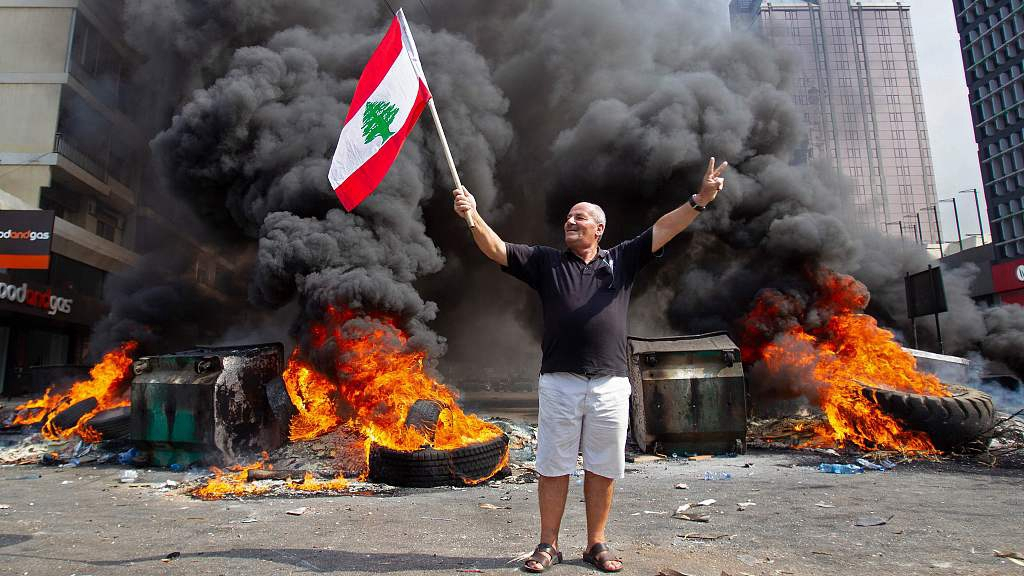
Photo: AFP
Thousands of protesters outraged by corruption and proposed tax hikes burned tires and blocked major highways in Lebanon on Friday, prompting the premier to give his government partners three days to support a reform drive.
Demonstrations flared on Thursday, partly sparked by a proposed tax on calls via messaging apps such as WhatsApp, and grew into the largest in recent years, threatening to topple Prime Minister Saad Hariri's fragile coalition government.
What are the protests about?
The protesters are demanding a sweeping overhaul of Lebanon's political system, citing grievances ranging from austerity measures to poor infrastructure. In a televised address Friday evening, Hariri said he understood their anger and was trying to push through change.
Hariri called on his coalition partners to give a "clear, decisive and final response to convince me, the Lebanese people and the international community... that everyone has decided on reforms, or I will have something else to say."
He gave them a 72-hour deadline to do so, without directly threatening to resign. Foreign Minister Gebran Bassil earlier warned the government's resignation could lead to "something much worse."
Riot police were deployed in the center of Beirut Friday evening, readying for a second night of protests and rioting, AFP reported.
Ensuing clashes wounded at least 52 riot police officers, the Internal Security Forces said on Twitter, adding that 70 people were arrested. The number of wounded protesters was not yet clear as of Friday night.
What's the reaction been?
Lebanon, which in 1990 emerged devastated from a 15-year civil war, maintains a complicated political system balancing the influence of Christians, Sunni and Shia Muslims and other religious groups.
The current government has backing from across the political spectrum but faces financial woes including a ballooning deficit.
Public anger surged after parliament passed an austerity budget in July, and on Thursday it flowed into the streets over plans to introduce a tax on calls via messaging apps, widely used in Lebanon.
The government scrapped the proposal within hours, but demonstrations carried on into the night before security forces dispersed them at dawn Friday. Banks, state institutions, schools and universities were closed Friday as the rallies spread throughout the country.
Reflecting the scale of public anger, rare demonstrations were reported in neighborhoods dominated by powerful Shiite movement Hezbollah, not used to opposition in its own bastions.
South of Beirut, travelers trying to reach the airport had to leave their luggage behind, hitching rides on scooters and clambering over roadblocks.
Sami Nader, director of the Levant Institute for Strategic Affairs, told AFP the protests were "totally spontaneous" and appeared to target the entire political class.
"The protests are a result of a piling up of grievances, resulting mainly from government mismanagement," he said. They are the largest demonstrations since a 2015 refuse collection crisis sparked widespread anti-government protests.


